ARTICLE AD BOX

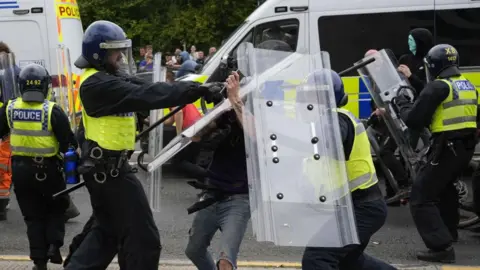 PA Media
PA Media
More than 500 new prison places will be made available to ensure those taking part in rioting and disorder on UK streets can be jailed, the government said.
It comes after days of violence and unrest across parts of the UK following the fatal stabbing of three girls in Southport last week.
Justice Minister Heidi Alexander said there was a "prison place waiting" for everyone involved in the violence.
Prime Minister Sir Keir Starmer told members of the cabinet "99.9% of people across the country want their streets to be safe".
He pledged to "take all necessary action to bring the disorder to an end".
Meanwhile, the Archbishop of Canterbury called on people to hold "peaceful" protests, which will have "10,000 times the impact" of the disorder.
Speaking about space in prisons, Ms Alexander told BBC Radio 4's Today programme: "We will make sure that anyone who is given a custodial sentence as a result of the riots and disorder, there will be a prison place waiting for them."
She said 567 additional prison places would soon be available, including extra cells at HMP Stocken, Rutland, and places at Cookham Wood Young Offender Institution in Kent for adult prisoners.
Further information released by the Ministry of Justice said it would also speed-up fire safety works in other parts of the prison estate to create useable space.
It follows the introduction three weeks ago of new measures to release some prisoners early due to a lack of capacity in the prison system.
To ensure "swift justice" can be delivered, Ms Alexander said courts in some areas "could possibly" begin sitting through the evening, nights and weekends.
Disorder has now lasted almost a week, following the fatal stabbing of three girls in Southport. The subsequent unrest in towns and cities across England and in parts of Northern Ireland has been fuelled by misinformation online, the far-right and anti-immigration sentiment.
Sir Keir said over the weekend that those taking part in the violence would "regret" their involvement.
Despite the warnings, Devon and Cornwall Police said several officers had suffered minor injuries in the violence in Plymouth on Monday night.
The city council's deputy leader, Jemima Laing, said it was "upsetting" to see Plymouth used as a stop on the "racist summer tour" that appears to be happening.
In South Belfast, riot officers had stones and petrol bombs thrown at them in an area close to a supermarket which was set on fire at the weekend. A man in his 50s has been hospitalised in an incident the police are treating as a racially motivated hate crime.

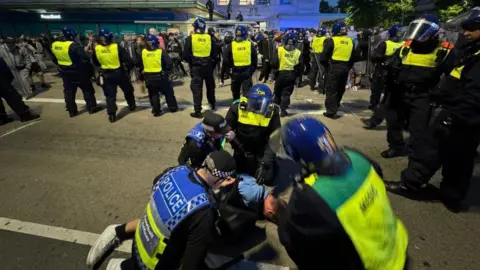 Getty Images
Getty Images
Police officers detain individuals in Plymouth on Monday night
An 18-year-old has been arrested in Darlington, where bricks were thrown at police officers after two groups gathered near a mosque
In Birmingham, there were disturbances after hundreds of people gathered in the Bordesley Green area of the city following false reports that a far-right march had been planned there.
A group of youths went on to break away from the gathering and attack several vehicles and a pub.
West Midlands Police later said no arrests had been made, but officers were investigating reports of an assault and incidents of criminal damage.

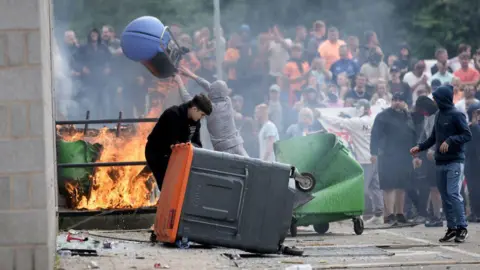 Getty Images
Getty Images
Fires were lit outside the Holiday Inn Express in Rotherham, which houses asylum seekers, on Sunday
The week of rioting also saw two hotels housing asylum seekers targeted last weekend in Rotherham and Tamworth, with windows smashed to gain access and fires lit.
Six people have so far been charged over the disorder in Rotherham, South Yorkshire Police said.
In Middlesbrough, homes and businesses belonging to Muslims were also attacked.
A 17-year-old resident said her family "closed all the blinds and curtains" and sought safety upstairs as the rioters moved through her street.
She told the Today programme, they tried to break into her house, and destroyed the family car, which "had to be a write-off" after the damage inflicted on it.
Twenty-eight people were due to appear at Teesside Magistrates' Court later on Tuesday, charged with violent disorder and other offences after events in Middlesbrough.
The Archbishop of Canterbury Justin Welby on Tuesday called out the rioting, saying perpetrators "talk about defending this country’s Christian values.
"When Jesus was asked what you should do to have a good life, he said love God, love your neighbour and love your enemy."
Mr Welby told the BBC protests were a good thing and "fundamental" to our freedoms, but only if done peacefully.
"Peaceful protest - peaceful statements - will convince, will change people's minds [and] will at the very least, cause them to listen," he said.

 8 months ago
40
8 months ago
40
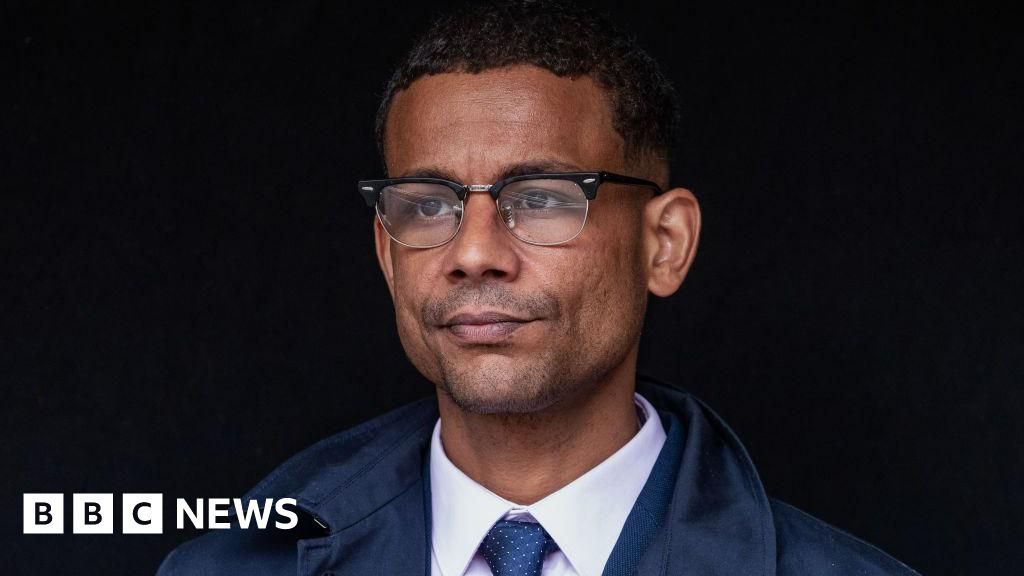
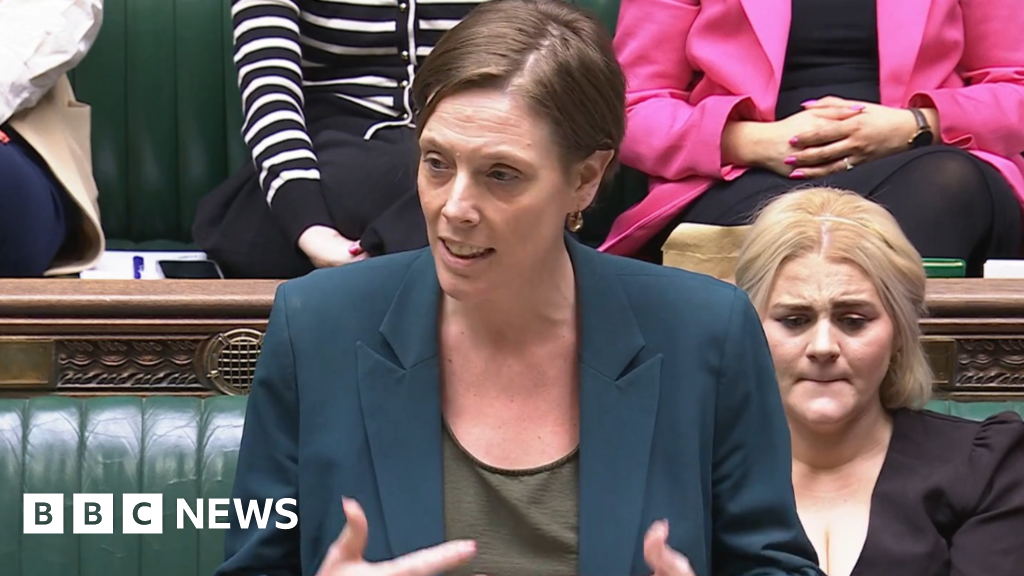
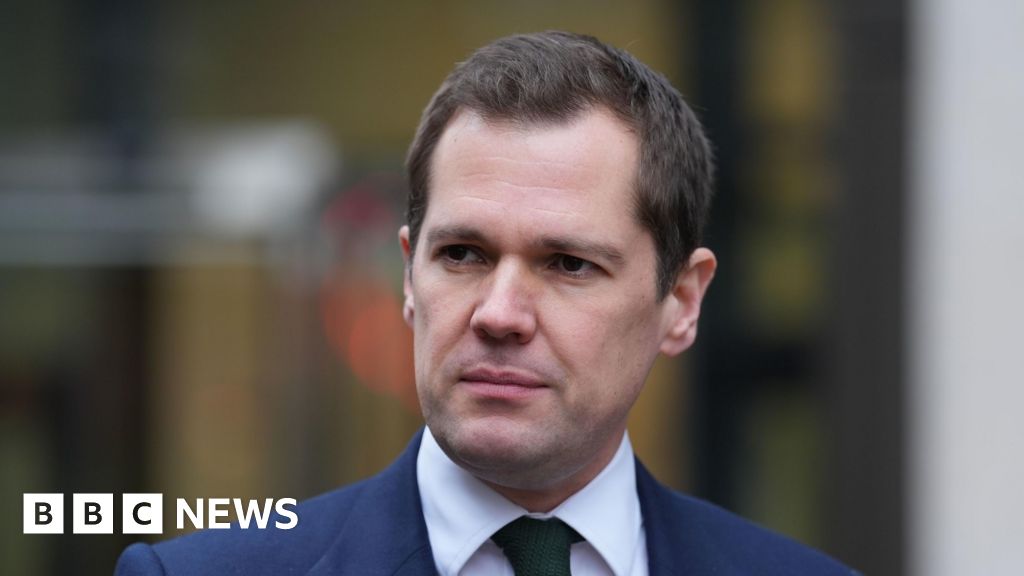





 English (US) ·
English (US) ·